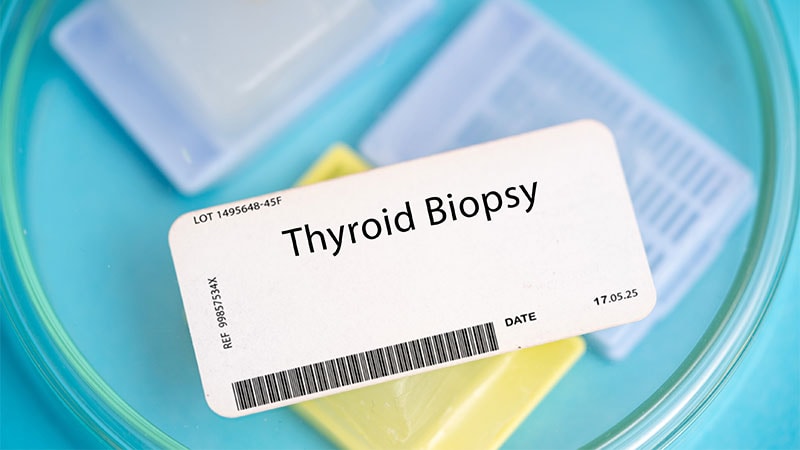Bethesda System for Reporting Thyroid Cytopathology 2023 Update
Основні поняття
Standardizing and updating thyroid cytopathology reporting for improved clarity and communication.
Анотація
The Bethesda System for Reporting Thyroid Cytopathology (TBSRTC) has been updated to the 2023 version, aiming to enhance the standardization and clarity of reporting for thyroid fine-needle aspiration (FNA) of nodules. The latest edition simplifies the names of diagnostic categories, updates risk of malignancy estimates, and includes new chapters and illustrations. The revisions align with the 2022 World Health Organization Classification of Thyroid Neoplasms and incorporate pediatric thyroid disease discussions. The updates aim to improve communication between cytopathologists and clinical teams, enhancing patient care and management.
Key Highlights:
TBSRTC 2023 simplifies diagnostic category names and updates risk of malignancy estimates.
The updated version includes expanded chapters, refined definitions, and new illustrations.
Management algorithms and risk of malignancy calculations are provided for each reporting category.
The inclusion of pediatric thyroid disease discussions and alignment with the 2022 WHO classification are notable updates.
Endorsed by the European Federation of Cytology Societies, the revisions aim to improve clinical practice and patient care.
Bethesda System for Reporting Thyroid Cytopathology Updated
Статистика
"This new edition has carefully reviewed the published literature over the past 5 years or so since the release of the second edition," said co-editor Paul A. VanderLaan, MD, PhD.
"The majority of thyroid nodules that require surgery are treated by low-volume thyroid surgeons across this country," Persky told Medscape Medical News.
Цитати
"Broadly speaking, cytology reporting systems must be succinct, unambiguous, and clinically helpful," explained VanderLaan.
"The majority of thyroid nodules that require surgery are treated by low-volume thyroid surgeons across this country," Persky told Medscape Medical News.
Ключові висновки, отримані з
by Roxanne Nels... о www.medscape.com 08-01-2023
https://www.medscape.com/viewarticle/995041
Глибші Запити
How do the updates in the Bethesda System for Reporting Thyroid Cytopathology impact patient outcomes and treatment decisions?
The updates in the Bethesda System for Reporting Thyroid Cytopathology have a significant impact on patient outcomes and treatment decisions. By providing a standardized, category-based reporting system for thyroid fine-needle aspiration, the updated system allows for clearer communication between cytopathologists and clinical teams. This clarity helps in determining the risk of malignancy for each diagnostic category, which in turn guides treatment decisions. The inclusion of updated risk of malignancy estimates, especially for pediatric thyroid nodules, ensures that appropriate management strategies are implemented based on the latest data. Overall, the updates enhance the accuracy of diagnosis, leading to improved patient outcomes and tailored treatment plans.
What potential challenges might arise from the simplification of diagnostic category names in the updated system?
While simplifying the diagnostic category names in the updated Bethesda System for Reporting Thyroid Cytopathology improves clarity and communication, there are potential challenges that may arise. One challenge is the need for healthcare professionals to adapt to the new naming convention, especially if they were accustomed to the previous system. This transition period could lead to temporary confusion or misunderstandings until all stakeholders are familiar with the updated names. Additionally, simplification may oversimplify the nuances of certain cases, potentially leading to misinterpretation or misclassification of thyroid nodules. It is crucial for healthcare providers to undergo training and education on the updated system to mitigate these challenges effectively.
How can the incorporation of molecular testing in thyroid cytopathology enhance diagnostic accuracy and patient care in the future?
The incorporation of molecular testing in thyroid cytopathology holds great promise for enhancing diagnostic accuracy and patient care in the future. Molecular testing can provide additional information beyond traditional cytology, helping to stratify indeterminate cases more effectively. By analyzing genetic mutations and molecular markers, healthcare providers can better differentiate between benign and malignant thyroid nodules, leading to more precise diagnoses and tailored treatment plans. This personalized approach can reduce unnecessary surgeries for benign nodules and ensure timely interventions for malignant ones. Furthermore, molecular testing can guide the selection of targeted therapies for specific molecular subtypes of thyroid cancer, improving patient outcomes and quality of life. As technology advances and more molecular markers are identified, the integration of molecular testing into thyroid cytopathology is poised to revolutionize the field and optimize patient care.
0
